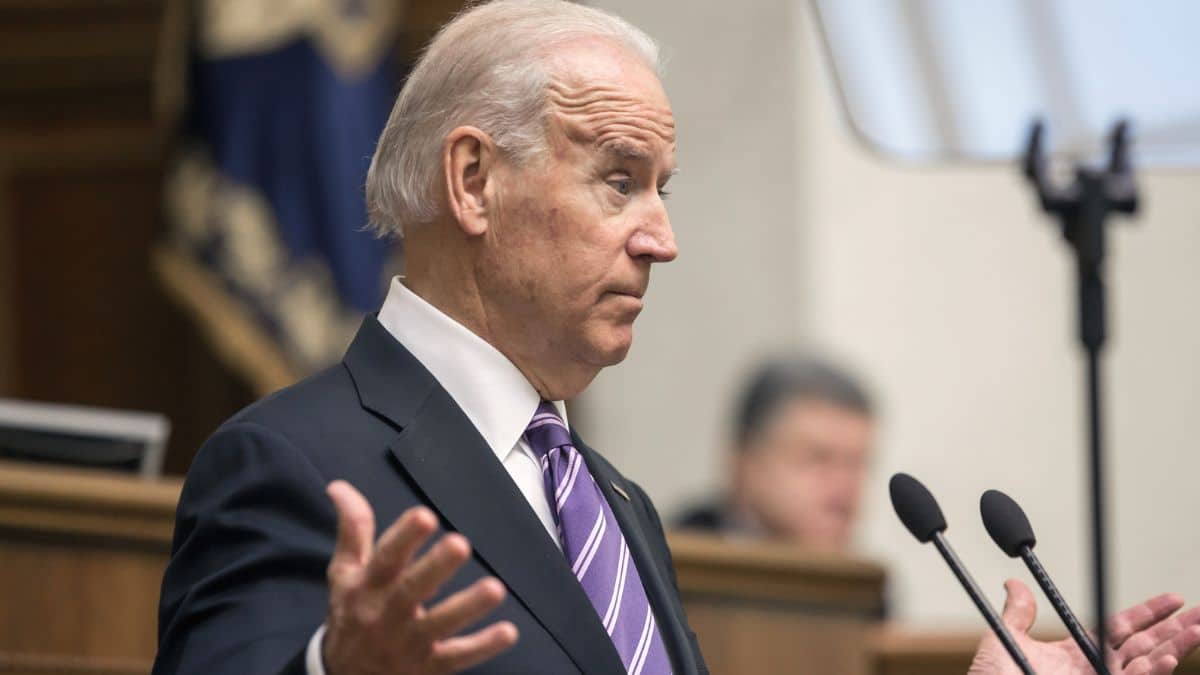On Tuesday, a federal judge decided that the $1.7 trillion spending bill from December 2022 was passed in a way that broke the rules, because not enough lawmakers were there in person. This decision puts a stop to enforcing a rule related to pregnant women at work.
Breaking Rules for $1.7 Trillion Bill?

Judge James Wesley Hendrix from Texas pointed out that the House didn’t follow the proper steps since they let people vote without being there, even though 215 Democrats and nine Republicans were all for it.
The Fine Line

“Although the Court finds that the passage of the Consolidated Appropriations Act violated the Constitution, Texas does not seek an injunction of—and the Court does not enjoin—the entire Act,” Hendrix noted in his detailed opinion.
Pregnant Workers Act

Hendrix added, “Rather, the Court enjoins only the application of the Pregnant Workers Fairness Act against Texas. The relief granted here is limited to abating the injury that Texas has proven will occur.”
Historical Context

Hendrix further elaborated, citing the Quorum Clause’s wording, its original intent, and traditional usage, that a legitimate quorum can’t be formed with members who aren’t physically there but join in by proxy.
Physical Presence Mandate

He referenced Supreme Court decisions that have consistently interpreted the Quorum Clause to necessitate actual presence, noting the clause explicitly separates non-present members from those counted in the quorum and outlines a method to secure a physical quorum by requiring absent members to show up.
This mandate for attendance underscores the necessity of being physically present.
Challenging Biden’s Approval

Paxton took Biden to court in February 2023, challenging his approval of the law. He argued that expecting Congress members to physically show up “would make little sense if the Constitution did not require physical attendance.”
Quorum Requirements

In a statement released Tuesday afternoon, it was highlighted that the U.S. Constitution’s Quorum Clause requires a majority of Congress members to be physically present for most official actions to take place.
Absentee Voting

In December 2022, the $1.7 trillion Consolidated Appropriations Act of 2023 was passed with less than half the House of Representatives actually on the floor, utilizing proxy votes for the absentees.
Biden’s Signature Questioned

Following President Joe Biden’s signature on what he deemed an illegitimately passed law, Paxton filed a lawsuit and sought to block specific parts of the law that would impact Texas.
Commitment to Constitutionality

The release further emphasized a significant win for Texas Attorney General Ken Paxton in his commitment to upholding the U.S. Constitution. A court determined that the U.S. House of Representatives did not meet constitutional quorum requirements when it passed the $1.7 trillion omnibus spending package in 2022.
Court Limits Law’s Application

As a result, the court prohibited the United States Attorney General, the Department of Justice, the Equal Employment Opportunity Commission, and related officials from applying a specific section of the Consolidated Appropriations Act of 2023 against Texas, which was shown to unfairly impose costs on the state.
The Largest Bill’s Flaw?

Paxton criticized the passage of what he called ‘the largest spending bill in U.S. history ‘by a House where less than half showed up to vote in person, accusing Pelosi of misusing proxy voting with COVID-19 as an excuse, and Biden for endorsing it, despite obvious constitutional violations.
“This was a stunning violation of the rule of law. I am relieved the Court upheld the Constitution,” he added.
Supreme Court Sides with Democrats

In January 2022, the Supreme Court sided with Democrats, turning down a Republican-led attempt to overturn the proxy voting rule established amid the 2020 COVID-19 crisis.
Unsuccessful Legal Fight

The Court chose not to entertain an appeal by House Minority Leader Kevin McCarthy, who aimed to eliminate proxy voting, a practice House Democrats initiated at the pandemic’s start.
The Final Say in Proxy Voting

McCarthy’s legal battle against Speaker Nancy Pelosi claimed the practice was unconstitutional, but the Supreme Court didn’t provide reasons for rejecting the appeal.
Read Next: What Really Causes Donald Trump’s Skin to be So Orange

Former President Donald Trump’s distinctive orange skin has captivated attention, sparking curiosity about its evolution from average pale over the years:
What Really Causes Donald Trump’s Skin to be So Orange
21 of the Biggest Lies in American History

Dive into the shadows of American history as we explore 21 of its biggest lies that have left an indelible mark on the nation’s narrative:
21 of the Biggest Lies in American History
32 Things We Once Highly Respected but Are a Complete Joke Now

Discover the amusing downfall of once-respected entities in our changing world:
32 Things We Once Highly Respected but Are a Complete Joke Now
23 of Donald Trump’s Most Hilarious Moments as President

Explore the lighter side of Donald Trump’s presidency with 23 hilariously memorable moments that left the nation in stitches:
23 of Donald Trump’s Most Hilarious Moments as President
27 Things MAGA Movement Ruined Forever for People

How the MAGA movement left its mark on individuals and disrupted certain aspects of our everyday life forever:










